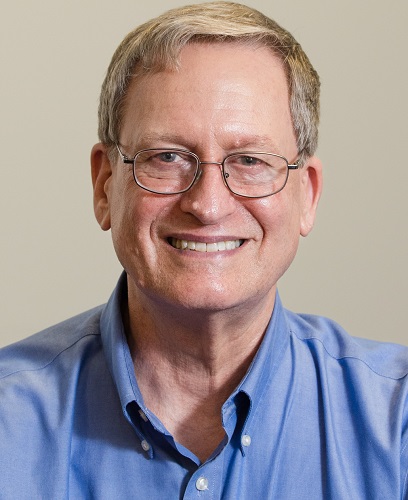Featured Stories
-
Elevating Pouch Manufacturing with Pearl Technologies' Cutting-Edge Solutions
For manufacturers seeking efficiency, precision, and safety in pouch production, Pearl delivers unmatched innovation across three standout... -
Faster Product Composition Analysis Equals Better Quality Assurance
Near Instant Testing and Reduced Costs to be Found -
Methods to Precisely Measure Tension and Web Control
How to Control Automatically Within Set Parameters
News | New Products
-
Convertech Brand to Fully Transition to Double E Group Same Team, Same Excellence, Unified Name
Double E Group has announced that Convertech, one of its subsidiaries and a trusted provider of core chucks and shaft solutions for the converting industry, will now operate solely under the Double E Group brand.
-
Pulse is Making Print Simple at Labelexpo Europe 2025
Narrow web ink specialist Pulse is Making Print Simple at Labelexpo Europe 2025, as it challenges flexo printers to rethink how they work and shows solutions that turn production bottlenecks into revenue generators.
-
ROTOCON to debut at Labelexpo Europe with three machine demonstrations
ROTOCON will make its Labelexpo Europe debut, exhibiting together with HS Machinery on stand 4D21.
-
At Interphex Japan, IL Group to Showcase Innovative Labeling Solutions and Contract Packaging Services
IL Group, a specialist in multifunctional labeling solutions for the pharmaceuticals and healthcare sectors
-
Revolutionizing Adherence: Clinical Trials Go Digital with Enhanced Key-Pak®
Keystone Folding Box Co., a leading provider of paperboard packaging solutions, has announced a strategic partnership with Med-Con Technologies
-
Innovating for Circularity: How New Sustainability Initiatives Are Shaping the Future of Labeling
In the face of growing regulatory, environmental and consumer pressures, the packaging and labeling industry continues to advance technologies and solutions that help to support a circular economy.
-
New Product Development: RKW Horizon®–MDO-PE Films with EVOH Barrier
RKW Horizon® is the new generation of sustainable PE plastic films based on the latest MDO technology.
Expert Advice
Supreme Court Decision Gives Employers Leeway in ADA
- Published: August 01, 2002, By Sheila A. Millar, Attorney-at-Law, Keller & Heckman, Washington, DC
In the third of recent, important decisions involving the Americans with Disability Act (ADA), the US Supreme Court unanimously ruled the ADA allows an employer to refuse to hire a person with a disability where that disability poses a direct threat to the individual when performing a job. The case is Chevron USA Inc. v. Echazabal.
Decisions addressing the scope of the ADA are critically important to converters, suppliers, and their customers, whose facilities may involve exposure to chemicals or other materials potentially harmful to individuals with certain medical conditions, or whose disabilities may impair their ability to do a job safely.
The facts of the case decided by the high court are as follows: The employee, Mario Echazabal, worked for a contractor of Chevron USA Inc. In 1996 Mr. Echazabal applied for employment directly with Chevron. The oil giant offered Mr. Echazabal employment, conditioned upon successfully completing a medical exam. The testing physician found liver damage and said continued exposure to toxins at the Chevron facility would lead to further liver damage.
Chevron withdrew its offer of employment to Mr. Echazabal and informed the contractor, Mr. Echazabal's employer, either to reassign him to a job that would not involve exposure to potentially damaging toxins or to remove him from the refinery. The contractor laid off Mr. Echazabal, and he filed suit against Chevron, alleging it violated the ADA.
The Supreme Court ruled an employer may refuse to hire an individual if, based on a reasonable medical judgment regarding that individual's medical condition, his disability would create or aggravate a danger to his own safety or health on the job.
Moreover, the Court noted, the Occupational Safety and Health Act (OSHA) requires an employer to actively ensure it provides a safe and healthful workplace. If Chevron were required under the Americans with Disabilities Act (ADA) to hire persons like Mr. Echazabal, then compliance with OSHA would conflict with the ADA, a result at odds with workplace safety objectives.
The unanimity of the decision is an especially important factor, suggesting rare agreement on the fundamental principle that employers may take into consideration a prospective employee's medical condition in determining the appropriateness of employment.
What should converters do?
A converter, supplier, or customer may require employees to meet physical and medical criteria, and may set those requirements as conditions upon which employment offers are made. However, those criteria must be applied to an individual based on a reasonable medical judgment of that individual.
Arguably, the ADA requires an employer to reassign an individual such as Mr. Echazabal to a position that would not endanger his safety or health, provided doing so would not be an undue burden. If no other job is available, an employer may refuse to hire that employee.
The Court addressed a number of important issues not discussed here; ADA requirements and the Chevron case's assessment of them involve complex issues. Members of the converting industry should be sure to review carefully hiring and accommodation decisions with experienced labor specialists to be sure they are adhering to the applicable requirements.
Sheila A. Millar, a partner with Keller and Heckman LLP, counsels both corporate and association clients. Contact her at 202/434-4143; millar@khlaw.com; PackagingLaw.com





















